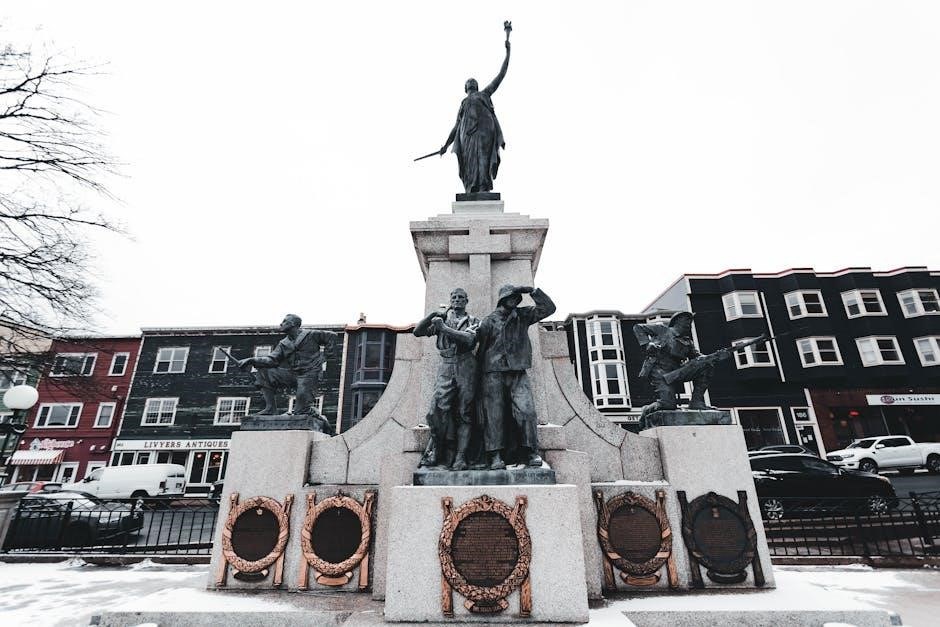Airbnb Host Checklist⁚ A Complete Guide
This comprehensive guide provides a step-by-step checklist for aspiring Airbnb hosts. It covers pre-listing preparations, legal compliance, property setup, guest safety, house rules, pricing strategies, marketing, automation, guest experience enhancement, maintenance, and financial management. Downloadable checklists are available for various aspects, ensuring a smooth and successful hosting journey. A free Airbnb listing is possible.
I. Pre-Listing Preparations
Before listing your property on Airbnb, meticulous planning is crucial. Begin by defining your hosting goals⁚ What type of guest experience do you envision? What is your target market? Next, thoroughly research your local laws and regulations, ensuring compliance with zoning ordinances, safety codes, and tax requirements. This includes obtaining necessary permits and licenses. Conduct a comprehensive market analysis, comparing your property to competitors to determine optimal pricing and amenities. Develop a detailed description of your property, highlighting its unique features and benefits. High-quality photographs are essential; professional photos significantly improve booking rates. Create a compelling listing that accurately represents your space and appeals to your target audience. Finally, establish a clear process for guest communication and booking management. Consider using a calendar management system to streamline your workflow and avoid double-bookings.
II. Legal and Regulatory Compliance
Navigating the legal landscape of short-term rentals is paramount. Start by researching your local zoning regulations to ensure your property is legally permitted for Airbnb operation. This often involves obtaining necessary permits or licenses. Understand and comply with all relevant safety regulations, including fire codes, smoke detector requirements, and carbon monoxide detector installation. These are crucial for guest safety and to avoid potential liabilities. Familiarize yourself with local tax laws, as you’ll likely need to collect and remit occupancy taxes or other applicable fees. Airbnb offers resources and tools to help with tax compliance. Consider consulting with a legal professional or tax advisor to ensure full compliance. They can offer guidance on specific regulations in your area. Thoroughly review Airbnb’s Host Guarantee and understand its limitations. It’s also advisable to have adequate insurance coverage, protecting both your property and your guests. Maintaining detailed records of your compliance efforts is essential, should any issues arise.
III. Property Preparation and Amenities
Transforming your space into a welcoming Airbnb requires meticulous preparation. Begin with a deep clean, ensuring every surface is spotless. Pay close attention to details like removing dust, cleaning bathrooms thoroughly, and refreshing linens. Next, consider your property’s aesthetic appeal. High-quality photos are crucial for attracting guests, so declutter and stage your space to showcase its best features. Provide essential amenities that enhance guest comfort. This includes fresh towels, toiletries (soap, shampoo, conditioner), clean linens, and kitchen basics (e.g., cooking oil, salt, pepper). Ensure sufficient towels and bedding for the maximum occupancy. Wi-Fi access is almost universally expected, so test your connection speed and provide login details. Think about extra touches that elevate the guest experience, such as a welcome guide, local recommendations, or complimentary snacks. Finally, create a detailed inventory list of all items in your property. This aids in managing inventory, preventing losses, and facilitating smooth check-ins and check-outs. Regularly review and update this list as needed.
IV. Guest Safety and Security
Prioritizing guest safety is paramount for a successful Airbnb hosting experience. Begin by installing and testing smoke detectors and carbon monoxide detectors, ensuring they are functioning correctly. Clearly mark emergency exits and provide instructions on how to use fire extinguishers, if available. Provide well-lit pathways, both inside and outside the property, to prevent accidents. Ensure that all locks and windows are in good working order, providing secure access for your guests while also maintaining their safety. Consider additional safety measures such as security cameras (with clear disclosure to guests) or a security system. A first-aid kit stocked with essential supplies should be readily accessible. For added peace of mind, you might consider sharing local emergency contact information with your guests. Clearly communicate your house rules regarding safety measures, including the proper use of appliances and the importance of reporting any maintenance issues promptly. Remember that proactive measures significantly contribute to a secure and comfortable stay for your guests, reinforcing positive reviews and fostering trust in your hosting abilities. Guest safety is not just a matter of compliance but a commitment to providing a positive and reassuring experience.
V. Setting Clear House Rules
Establishing clear and concise house rules is crucial for a positive guest experience and protects your property. These rules should be easily accessible to guests, ideally both online and within the property itself. Address key areas such as noise levels, respecting quiet hours, and responsible waste disposal. Specify rules regarding pets, if allowed, including any additional fees or restrictions. Clearly outline procedures for check-in and check-out, including key exchange and communication protocols. Define rules about smoking (strictly prohibited in most cases), and emphasize the importance of cleanliness and respecting the property’s amenities. Set guidelines on the use of appliances, including kitchen equipment and laundry facilities. Address the use of common areas and any shared spaces. Specify limitations on the number of guests permitted, including overnight visitors. Inform guests about parking arrangements and restrictions. Ensure that your house rules are fair, reasonable, and in line with local regulations. Provide a contact method for any questions or emergencies that may arise. Well-defined house rules minimize misunderstandings and contribute to a more harmonious hosting experience for both you and your guests. Remember to consistently enforce your rules to maintain order and respect within your property.
VI. Pricing and Revenue Strategy
A well-defined pricing strategy is essential for maximizing your Airbnb revenue. Begin by researching comparable properties in your area to establish a competitive baseline. Consider factors such as location, amenities, and the overall quality of your accommodation when setting your rates. Analyze seasonal fluctuations in demand; adjust your pricing to reflect peak and off-peak seasons. Utilize dynamic pricing tools to automatically adjust your rates based on real-time demand and market conditions. Offer various pricing packages to cater to different guest needs and preferences, such as weekend getaways or longer-term stays. Consider offering discounts for longer stays or repeat bookings to incentivize guests and increase occupancy rates. Regularly review and adjust your pricing strategy based on performance data, market trends, and guest feedback. Analyze your booking history to identify profitable pricing points and optimize your revenue. Don’t undervalue your property; aim for a balance between competitive pricing and maximizing your profit margin. Promote any special offers or discounts to attract more bookings and increase revenue streams. Remember that clear and upfront pricing builds trust and encourages guest bookings. Carefully factor in all costs, including cleaning fees, utilities, and maintenance expenses, to ensure profitability.
VII. Marketing and Guest Communication
Effective marketing and clear communication are crucial for attracting guests and ensuring positive reviews. Optimize your Airbnb listing with high-quality photos showcasing your property’s best features. Write a compelling description highlighting unique selling points and amenities. Use relevant keywords to improve search engine visibility. Respond promptly and professionally to all guest inquiries, addressing their questions and concerns thoroughly. Provide clear and concise instructions for check-in and check-out procedures. Maintain open communication throughout the guest’s stay, addressing any issues or questions that arise. Encourage guests to leave reviews by sending a follow-up message after their departure. Consider using social media platforms to promote your Airbnb listing and engage with potential guests. Partner with local businesses or tourism agencies to cross-promote your property and reach a wider audience. Utilize Airbnb’s built-in marketing tools to enhance your listing’s visibility and reach potential guests actively searching for accommodations in your area. Run targeted advertising campaigns on social media or search engines to reach specific demographics. Monitor your listing’s performance regularly and adjust your marketing strategies as needed based on data and feedback. Craft personalized welcome messages to create a warm and inviting atmosphere for your guests. Promptly address any negative feedback and use it as an opportunity for improvement.
VIII. Automation and Efficiency
Streamline your Airbnb hosting process using automation tools to save time and improve efficiency. Implement smart home devices for automated lighting, temperature control, and lock access, enhancing guest convenience and reducing manual tasks. Utilize automated messaging systems for guest communication, sending pre-arrival instructions, check-in details, and post-stay follow-ups. Explore property management software to centralize bookings, manage calendars, and automate pricing adjustments. Integrate payment processing systems for seamless transactions. Consider using a cleaning service to handle cleaning tasks between guest stays, freeing up your time. Implement a self-check-in system to reduce the need for in-person check-ins, providing guests with flexibility and autonomy. Explore automated pricing strategies to optimize revenue based on demand and seasonality. Use calendar syncing tools to avoid double-bookings and ensure accurate availability. Automate guest reviews and feedback collection to improve your service and gather valuable insights. Utilize tools to track expenses and manage your finances effectively, simplifying tax preparation and financial reporting. Leverage data analytics to identify trends and patterns in your bookings, helping you refine your pricing and marketing strategies. Establish clear workflows and checklists for various tasks, such as cleaning, maintenance, and guest communication, ensuring consistency and efficiency.
IX. Guest Experience Enhancement
Elevate your guests’ experience by focusing on thoughtful details and personalized touches. Provide a welcome guide with local recommendations, including restaurants, attractions, and transportation options. Offer a selection of complimentary amenities such as toiletries, snacks, and beverages, creating a welcoming atmosphere. Ensure your property is clean, well-maintained, and equipped with all necessary amenities. Create a relaxing and comfortable environment with comfortable furniture, soft lighting, and tasteful décor. Provide clear and concise instructions for using appliances and other features of your property. Be responsive and communicative, addressing guest inquiries promptly and efficiently. Offer flexible check-in and check-out times whenever possible. Consider providing extra services such as airport transfers or grocery delivery for added convenience. Gather guest feedback to identify areas for improvement and enhance your hosting skills. Personalize your communication by addressing guests by name and acknowledging their specific needs or requests. Create a welcoming and friendly atmosphere, making guests feel comfortable and at home. Provide a smooth and efficient check-in and check-out process. Go the extra mile to anticipate guest needs and exceed their expectations. This proactive approach will cultivate positive reviews and build a strong reputation as a top-rated host.
X. Ongoing Maintenance and Updates
Regular maintenance is crucial for ensuring a positive guest experience and protecting your investment. Schedule routine inspections to identify and address any potential issues promptly, such as plumbing leaks, electrical malfunctions, or appliance repairs. Address guest feedback constructively, using their comments to improve your property and services. Keep your property clean and well-maintained between bookings. Replace worn-out items promptly, ensuring that all amenities are functioning correctly and are in good condition. Update your listing with fresh photos and descriptions periodically to reflect any improvements or changes made to the property. Stay updated on local laws and regulations to ensure your Airbnb complies with all requirements. Consider offering seasonal updates and decorations to enhance the guest experience. Regularly review and update your house rules to maintain clarity and enforce safety standards. Implement a system for tracking maintenance tasks and scheduling necessary repairs. Perform preventative maintenance to avoid larger, more costly problems down the line. Respond promptly to guest maintenance requests and strive to resolve issues efficiently. Maintain a detailed inventory of all items in your property for easy tracking and replacement. Consider investing in professional cleaning services between guest stays to ensure a consistently high standard of cleanliness. Regularly assess the condition of your property’s furnishings and appliances, replacing them as needed to maintain quality and appeal.
XI. Financial Management and Reporting
Effective financial management is essential for maximizing profitability and minimizing financial risks. Track all income and expenses meticulously using spreadsheets or accounting software. Separate your Airbnb business finances from your personal accounts for clarity and tax purposes. Understand and account for all Airbnb fees and taxes applicable in your region. Regularly review your pricing strategy to optimize occupancy and revenue. Explore various pricing models, considering factors like demand, seasonality, and competition. Analyze your booking data to identify peak seasons and adjust pricing accordingly. Utilize Airbnb’s reporting tools to monitor your income, expenses, and occupancy rates. Create a budget for your Airbnb business, forecasting income and expenses for the upcoming months. Set aside funds for unexpected repairs and maintenance costs. Explore options for tax deductions and credits relevant to your Airbnb business. Consider using accounting software to automate financial tracking and reporting. Regularly reconcile your bank statements with your financial records to ensure accuracy. Keep all financial records organized and easily accessible for tax purposes. Consult with a tax professional to understand your tax obligations as an Airbnb host. Explore different payment methods to streamline financial transactions. Invest in appropriate insurance to protect against financial losses due to unforeseen events. Regularly review your financial performance, identifying areas for improvement and cost-saving measures.



